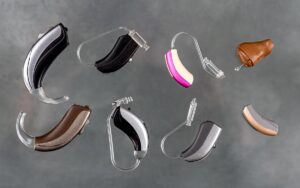
People typically don’t like change. Taking this into account, there can be a double edged sword with hearing aids: they open up an exciting new world of sounds for you, but they also represent a significant transformation of your life. If your someone who enjoys a very rigid routine, the change can be difficult. There are very particular challenges with new hearing aids. But learning how to adjust to these devices can help guarantee your new hearing aids will be a change you will enjoy.
Here Are Some Quick Ways to Adapt to Your New Hearing Aids
Your hearing will be significantly enhanced whether you are getting your first hearing aids or upgrading to a more powerful design. That could be challenging depending on your circumstances. But your transition might be a little bit smoother if you follow these tips.
Begin Wearing Your Hearing Aids in Smaller Doses
The more you wear your hearing aids, as a general rule, the healthier your ears will stay. But if you’re breaking in your very first pair, wearing your hearing aids for 18 hours per day can be somewhat uncomfortable. You could try to build up your endurance by beginning with 8 hours and increasing from there.
Practice Listening to Conversations
When your brain is first able to hear sound again it will likely need an adjustment period. You might have a tough time making out speech clearly or following conversations during this adjustment time. But if you want to reset the hearing-language-and-interpreting region of your brain, you can try practicing techniques such as reading along with an audiobook.
Have Your Hearing Aids Fitted
Even before you get your final hearing aid, one of the first things you will do – is go through a fitting process. Maximizing comfort, taking account of the size and shape of your ear canal, and adjusting for your individual hearing loss are all things that a fitting can help with. You might need to have more than one adjustment. It’s important to consult us for follow-up appointments and to be serious about these fittings. Your hearing aids will sound more natural and will sit more comfortably if they fit properly. Adjustments to different conditions can also be made by us.
Troubleshoot
Sometimes when you first get your hearing aid something isn’t working right and it becomes hard to adjust to it. If there is too much feedback that can be uncomfortable. Or perhaps the hearing aid keeps falling out (which can be frustrating). It can be overwhelming to adapt to hearing aids because of these types of issues, so it’s a good idea to find solutions as soon as you can. Try these guidelines:
- Charge your hearing aids every evening or replace the batteries. When the batteries on your hearing aids begin to decline, they often do not perform as effectively as they’re intended to.
- If you notice a lot of feedback, ensure that your hearing aids are correctly seated in your ears (it might be that your fit is just a bit off) and that there aren’t any blockages (earwax for instance).
- Discuss any buzzing or ringing with your hearing expert. Sometimes, your cell phone will cause interference with your hearing aid. In other situations, it may be that we have to make some adjustments.
- Ask your hearing professional to double check that the hearing aids are correctly calibrated to your hearing loss.
The Advantages of Adapting to Your New Hearing Aids
It might take a little time to adapt to your new hearing aids just as it would with a new pair of glasses. Ideally, you will have an easier and quicker transition with these guidelines. But if you stick with it – if you get yourself into a routine with your hearing aids and really invest in adjusting to them – you’ll be pleased by how it all becomes second-nature. But before too long you will be able to place your attention on what your hearing: like your favorite shows or music or the daily discussions you’ve been missing. These sounds will remind you that all those adjustments are worth it ultimately. And sometimes change is not a bad thing.




